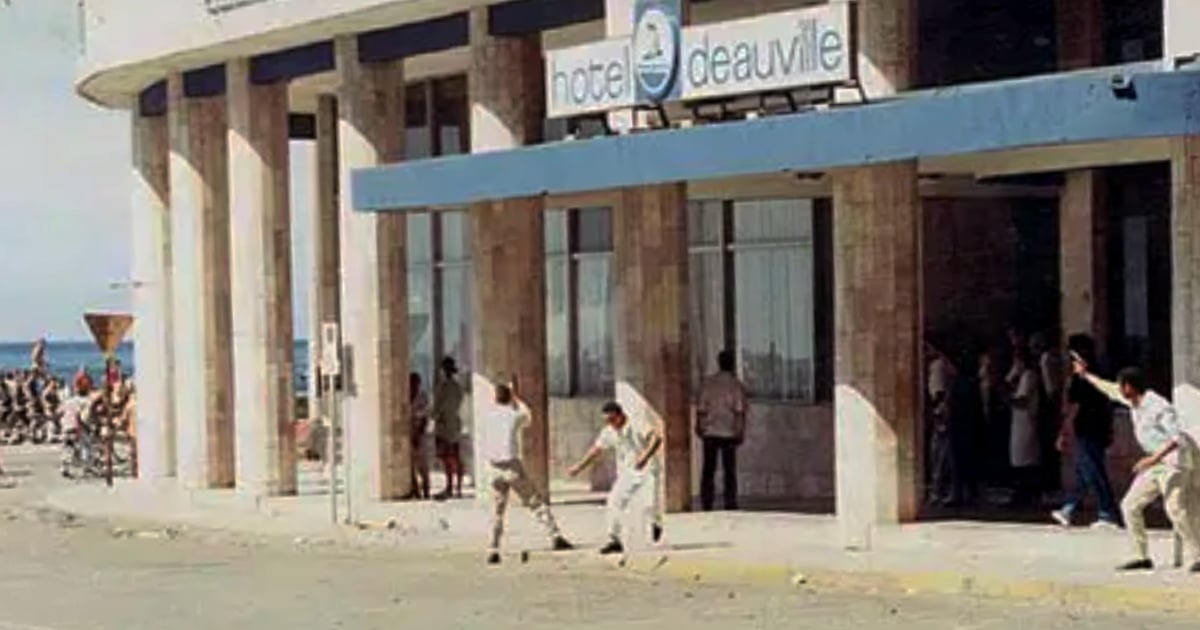
It was August 5, 1994, during the Special Period, and the Cuban regime had no idea that it would face one of the most challenging days in its bloody history, following the fall of the Berlin Wall.
The lack of food, fuel, and transport had left the Cubans skin and bones, carried like wandering souls on the Chinese Flying Pigeons, pedaling until they sweated the bicomplex given to them by the regime to alleviate hunger and the increase of polyneuritis.
Blackouts, days without water, heat, and nearly 10 years listening to that phrase "now we are really going to build socialism" - while witnessing the country fall apart, the international tourism sector emphasizing discrimination, and the rise of the first leaders of a noisy "proto-continuity" shouting slogans - were heating the pot.
The deliberate and criminal sinking of the tugboat "13 de marzo," carried out on July 13 of that year by orders of some powerful coward who will no longer pay, resulted in 41 deaths, 10 of whom were minors.
But it left something more: the feeling that there was little left to lose in a country that had lost its aura of "justice" and that showed the true face of its rulers: fanatics disconnected from reality and capable of provoking a bloodbath just to stay in power.
The pot exploded, and the town called that singular episode of protest El Maleconazo. The regime's propaganda tried to portray it as an outbreak of vandals and worms, which was quelled by the mere presence of the dictator Fidel Castro, who arrived “without escorts, surrounded by the people” to restore order and peace and reclaim “the streets for the revolutionaries.”
Smartphones and networks did not exist, but Dutch photographer Karel Poort captured the disturbances with his lens. He did not capture even a thousandth of what happened that day: people running along the Malecón cheering for those who had hijacked the Lanchita de Regla to go to the United States, the landing of the Rapid Response Brigades disguised as workers from the Blas Roca contingent, the iron rods, the broken heads, the blood, the screams, the terror.
But something did catch the visitor's eye and his camera. No matter how much they tried to sell the repression of uniformed men dressed as civilians as a "victory for the people," Poort pressed the shutter and obtained proof of the great lie: repressors in plain clothes near the Deauville hotel, firing their guns into the air to disperse the protesters.
After that, after a lot of beating, crackdowns, and trucks full of detainees, the Great Demagogue appeared with five security rings to play the role of the alpha male that the revolutionary crowd liked so much.
It is now said that with the historic protests of July 11, 2021 (11J), "fear changed sides." But the truth is that the fear of the revolutionary tough guys dates back to earlier, to that August 5 when they first heard the roar of the skinny people who were beginning to become aware of the oppression of the totalitarian regime built by a dictator clinging to power, and trembling at the "disintegration" of the socialist bloc.
What do you think?
COMMENTFiled under:
Opinion article: The statements and opinions expressed in this article are exclusively the responsibility of its author and do not necessarily represent the viewpoint of CiberCuba.